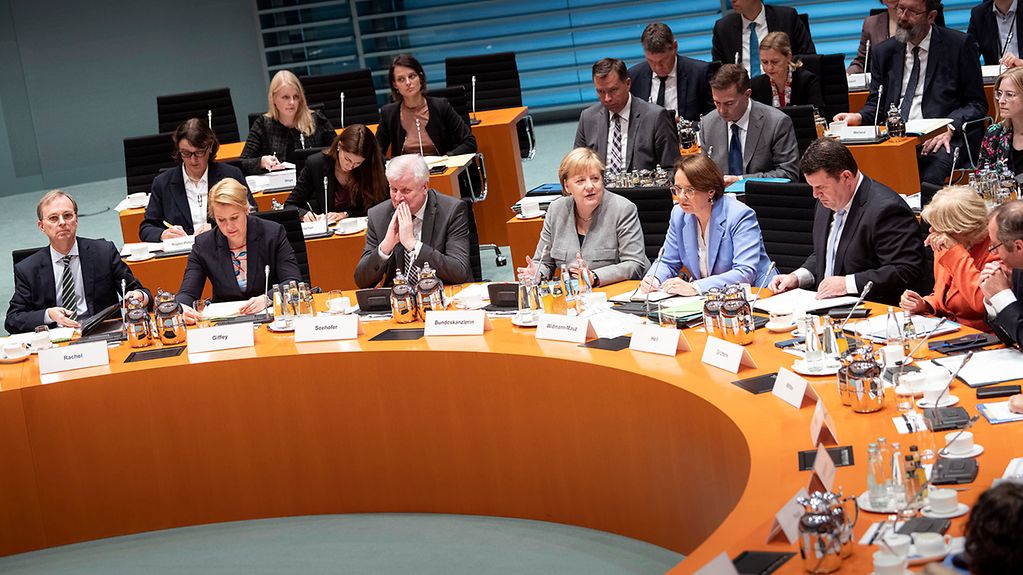Chancellor Angela Merkel meets with committed groups
It was the eighth time that Chancellor Angela Merkel hosted a meeting for groups and associations that are actively involved in helping refugees to integrate in German society. Support for women refugees and integration on the labour market were two of the issues discussed at the Federal Chancellery.
2 min reading time

It was the eighth time Chancellor Angela Merkel had hosted a meeting with groups and associations that are actively involved in integrating refugees
Photo: Bundesregierung/Bergmann
A large number of people are involved in refugee integration in Germany. Chancellor Angela Merkel thanked the many people, "who are working so hard and giving so much". Much depends on them. Democracy depends on voluntary work and individual dedication and commitment.
Representatives of trade unions, the private sector, the churches, foundations and migrants made the most of the opportunity to discuss matters with the Chancellor, the Federal Interior Minister, the Federal Labour Minister, the Federal Minister of Family Affairs, the Federal Government Commissioner for Integration and the Federal Government Commissioner for Culture and the Media.
A lot has been achieved
Participants discussed promoting democracy, the fight against right-wing extremism, trends in refugee numbers and the need to ensure assistance for individuals while not losing sight of the big picture. In recent years, major progress has been made on managing and registering refugees and processing requests for asylum, said Federal Interior Minister Horst Seehofer.
More refugees working
"The best way to integrate is to work," stressed Federal Labour Minister Hubertus Heil and added that more progress has been made here than would have been thought possible only a few years ago. The percentage of refuges from the main countries of origin now in formal jobs subject to social security contributions has risen to 34 per cent. And positive trends can also be seen on the training market. Inadequate German skills are an obstacle to integration on the labour market. The Skilled Workers Immigration Act (Fachkräfteeinwanderungsgesetz) still needs to be filled with life, but at the same time it is important not to deport "the wrong people" said Hubertus Heil.
Supporting refugee women
Women play an important part in the integration of refugee families. They, said Federal Government Commissioner for Integration Annette Widmann-Mauz, are an "integration anchor". This makes it all the more important that these women have better access to the labour market and to German language courses. Childcare for young children helps mothers find time to attend integration courses and German courses. Helping women who are victims of violence within the family or in refugee accommodation is another concern of the German government, as Federal Family Affairs Minister Franziska Giffey stressed.
The group is to meet again next year.